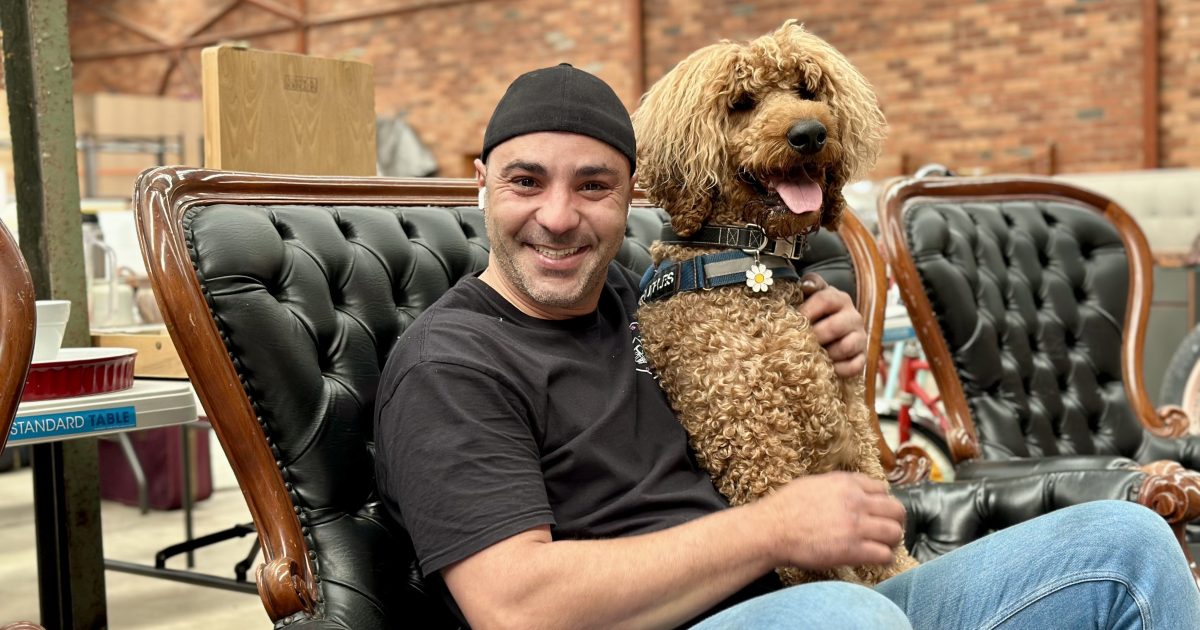
Julie Tester recalls the mortification in her friend’s voice. It was 2022, and both were employed at different stores within the Lovisa budget jewelry chain. Due to staffing policies designed to minimize costs, they often worked alone for hours, unable to leave the shop even for a bathroom break. Tester’s friend confessed that she had resorted to urinating in a rubbish bin behind a cupboard door, too embarrassed to speak of it again. “I cried when I heard that,” Tester says. “She was devastated.”
This incident was not isolated. Tester later learned that a former manager had also been caught short. “She wet herself because she didn’t have time to go to the toilet,” Tester explains. Despite her loyalty to Lovisa, where she had been recognized for her dedication, these revelations left her questioning the company’s practices. “How did we get to the point where we’re so degraded?” she wonders.
The Rise of Lovisa
By most measures, Lovisa is a success story in the Australian retail industry. Since its inception 15 years ago, the chain has grown into a global network of over 1000 stores across 50 countries, including the US, China, and Zambia. In Australia, its 182 stores are popular among young women, drawn to its affordable, ever-changing jewelry collections. Last financial year, Lovisa reported global sales of $798 million, a 14% increase from the previous year.
However, amid this success, a rebellion is brewing. Nearly 700 former and current staff from Australian stores have initiated a class action against Lovisa, seeking compensation for alleged violations of the Fair Work Act and breaches of workplace agreements. The company is accused of maximizing profits at the expense of employees by requiring unpaid work beyond scheduled shifts and denying meal and toilet breaks.
A Class Action Driven by Women
The class action, filed in the Federal Court by Adero Law, is notable for its predominantly female participants. “Ninety-nine percent of the group are women,” says Corinne Armanini, special counsel at Adero Law. She emphasizes the claimants’ eagerness to participate, driven by a sense of being wronged. “They’re a very passionate group,” Armanini notes, highlighting the popularity of social media forums where former employees share their grievances.
Former Lovisa employees are eager to share their stories. Katerina Nikolovska, who managed two stores in Melbourne, and Tatjana Smiljic, who worked in Adelaide, express a desire to expose the company’s practices. Tester remains emotional about her friend’s humiliation and is determined to explain why her four-year tenure ended in disillusionment. “I could speak to you for three hours about that place,” she says.
The Man Behind the Brand
Lovisa’s success is closely tied to Brett Blundy, the co-founder and chairman of Lovisa Holdings Limited. Blundy, a renowned Australian businessman, is the company’s largest shareholder. With a personal fortune estimated at $3.95 billion, he resides in Monaco, a European tax haven. Despite his media-shy persona, Blundy’s influence in retail is undeniable. His ventures include chains like Bras N Things, Honey Birdette, and The Athlete’s Foot.
Blundy’s reputation as a retail genius is well-established. However, his reluctance to engage with media inquiries about the class action raises questions. Attempts to contact Lovisa’s Melbourne headquarters have been met with silence, leaving former employees to speculate about the company’s stance.
Allegations of Exploitation
Former employees describe a workplace environment where staffing levels were kept deliberately low to reduce wage costs. Smiljic recalls working alone for hours without breaks, while Tester highlights the unworkable policy of not closing the store until it was empty. “That’s why girls have peed themselves,” she says.
Employees were also expected to purchase and wear Lovisa jewelry while working, often spending significant portions of their wages on these items. Jade Harrison-Will, who worked in Canberra, calculated she spent about $1500 on jewelry in one year, despite earning between $10,000 and $15,000 annually.
Store managers faced pressure to meet sales targets, often resorting to purchasing items themselves to boost numbers. “It was a blame and shame game,” Harrison-Will explains, describing the anxiety-inducing environment.
Legal and Ethical Implications
The allegations against Lovisa reflect broader issues in the retail industry, where wage theft and exploitation are rampant. The Australian Council of Trade Unions advocates for abolishing the junior wages system, which allows younger workers to be paid less than their older counterparts. “Young people don’t get discounts on their rent, so why should they get youth wages?” asks ACTU secretary Sally McManus.
John Howe, associate dean at Melbourne Law School, highlights the endemic nature of underpayment in industries employing young workers. “A third of young workers know they have been underpaid,” he notes, emphasizing the need for increased enforcement and awareness of workers’ rights.
While Lovisa denies any wrongdoing, the class action represents a significant challenge to the company. As the case progresses, it may set a precedent for addressing labor practices in the retail sector.
For the women involved, the litigation is about more than compensation; it is a stand against exploitation. “My goal is to make other retail workers understand that this is not the way your job should be treating you,” says Smiljic.
As the legal battle unfolds, the courage of these women in speaking out may inspire change across the industry, challenging companies to prioritize fair treatment of their employees.





